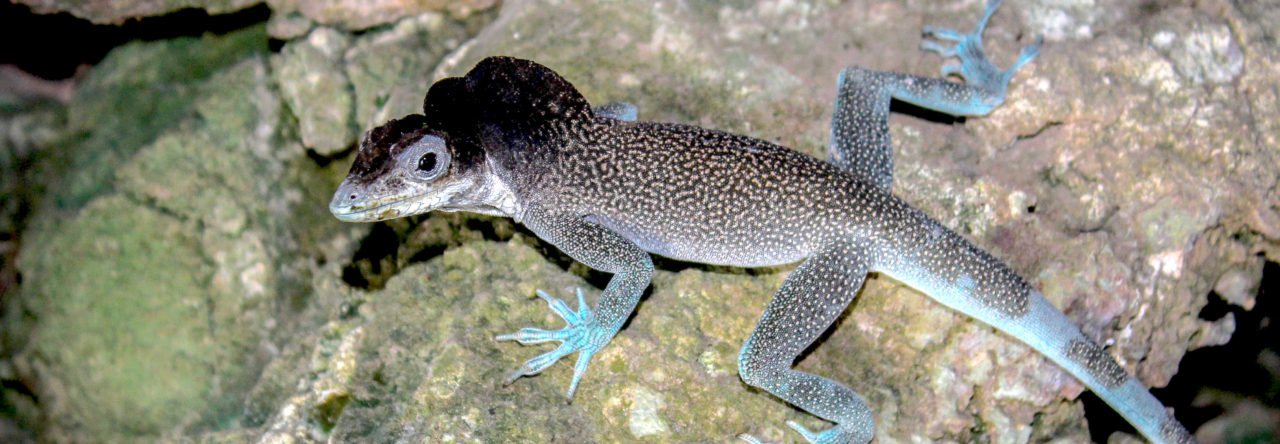
 Arginine vasotocin, the reptilian homolog to vasopressin is a potent modulator of social behavior. (photos from Wikipedia)
Arginine vasotocin, the reptilian homolog to vasopressin is a potent modulator of social behavior. (photos from Wikipedia)
For many of us, hearing about arginine vasotocin (AVT), or its mammalian homolog vasopressin, conjures up memories from a physiology class about water balance and the antidiuretic effects of the vasopressin system. However, AVT is also a potent neuromodulator and neurotransmitter in the brain that has strong effects on social behavior, such as parental care and pair bonding. Although most of this behavioral research has been done in mammals and birds, it appears that AVT might have similar behavioral functions in anoles! Leslie Dunham, a graduate student at Georgia State University, experimentally assessed the effects of AVT on male and female green anole behavior. By comparing lizards injected with either AVT or a control solution, Dunham was able to examine the effects of AVT on aggression and courtship in males. The behavior of individuals in the two experimental groups was then assessed in the following contexts: aggression toward a mirror, aggression toward another male, and courtship toward a female. She found:
- Decreased aggression toward a mirror.
- No difference in aggression toward a size-matched male.
- No difference in courtship behavior directed at a female.
AVT decreases aggression in other vertebrates, but the lack of an effect on courtship in anoles suggests that AVT may modulate behavior differently in male anoles compared to fish and birds.
But wait, there’s more! Not to be outdone by other types of vertebrates, females in the courtship trials showed some very interesting behavior. Although Dunham focused on the effects of AVT on male behavior, she also measured female behavior during the trials. She found that females displayed more toward males treated with AVT compared to control males. This was despite any detectable behavioral difference between the male treatment groups. Why is this? Although the answer is still unknown, Dunham proposed some plausible and testable hypotheses for what might be happening. First, there may be subtle changes in behavior brought about by AVT that weren’t detected. Second, there may be a role for chemical communication between the sexes during courtship that wasn’t measured. Anoles, and iguanian lizards in general, aren’t known for their reliance on chemical communication, so this possibility is sure to spark some interesting future research.
- Exercise and the Immune System in Green Anoles - January 6, 2021
- Exercise Can Kill You (If You’re an Anole)! - May 10, 2019
- Leptin Mediates Tradeoffs in Green Anoles - February 2, 2019


Leave a Reply